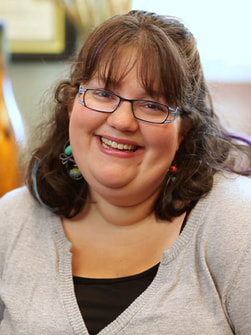
Jill Hogan
is an Assistant Professor of Psychology at Siena College, where she teaches courses in introductory, developmental, and educational psychology.
Contrary to what her domain name says, she is currently physically located in Albany, NY, though her heart perpetually remains in Boston. You can find her on Google Scholar, Research Gate, and Academia.
Jill uses mixed and multi-methods to investigate thinking in and about the arts in schools. Her research interests center in habits of mind in arts education - broad ways of thinking that are potentially transferrable to other domains. Examples of these include persisting, working for the common good, goal-setting, being prepared, observing, listening, and exploring.
A former general music teacher for gifted, neurotypical, and autistic students, Jill is proud to actively collaborate on research with practicing teachers. She loves hearing from teachers interested in growth-centered formative assessment, choice-based or progressive music education, Studio Thinking, and Teaching for Artistic Behavior, for which she serves on the organization's Advisory Board.
is an Assistant Professor of Psychology at Siena College, where she teaches courses in introductory, developmental, and educational psychology.
Contrary to what her domain name says, she is currently physically located in Albany, NY, though her heart perpetually remains in Boston. You can find her on Google Scholar, Research Gate, and Academia.
Jill uses mixed and multi-methods to investigate thinking in and about the arts in schools. Her research interests center in habits of mind in arts education - broad ways of thinking that are potentially transferrable to other domains. Examples of these include persisting, working for the common good, goal-setting, being prepared, observing, listening, and exploring.
A former general music teacher for gifted, neurotypical, and autistic students, Jill is proud to actively collaborate on research with practicing teachers. She loves hearing from teachers interested in growth-centered formative assessment, choice-based or progressive music education, Studio Thinking, and Teaching for Artistic Behavior, for which she serves on the organization's Advisory Board.